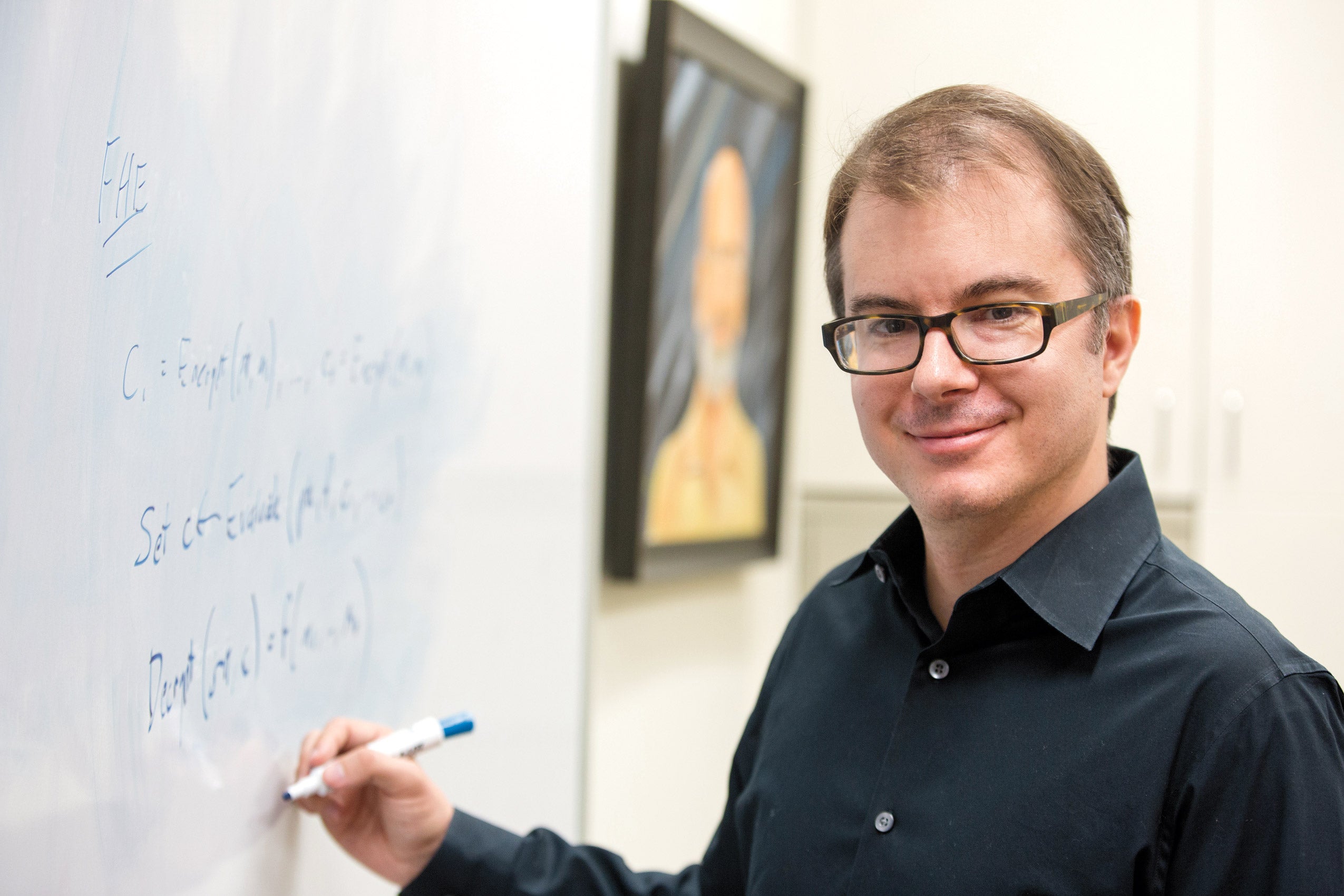It can occasionally be awkward when you win an award known as the “genius” grant. Especially for Craig Gentry ’98, who works among a lot of smart people at the IBM Thomas J. Watson Research Center in New York.
“Some of my colleagues say there’s only one certified genius among us,” he said. “I don’t really know how to respond to that. I smile and hope people ignore it.”
Craig Gentry has developed ways to keep data secure and accessible that may broaden the use of cloud computing.
It was hard to ignore in September, when Gentry became a recipient of the MacArthur Fellowship, which provides $625,000 to people “who show exceptional creativity in their work and the prospect of still more in the future” (the MacArthur Foundation does not actually use the term “genius” in granting the award). He was recognized for his work as a research scientist for IBM’s Cryptography Research Group, in particular for his focus on fully homomorphic encryption.
FHE is still in the development stage, but it has the potential to help keep information private, including by improving the security of cloud computing. The subject of his thesis for his Ph.D. from Stanford University in 2009, FHE allows people to perform operations on encrypted data while it is still encrypted.
For example, Gentry said, FHE could give someone the ability to request a Google search while encrypting the search query. Google would take that encrypted query and create a response that the user would then decrypt. The result: Google would perform the search function while not recognizing what it was searching for. The technology could be used for industries such as health care, allowing hospitals to store on the cloud sensitive data that could be searched without violating patients’ privacy. In the legal field, patent lawyers could search databases without revealing their interest in a particular invention.
“It’s great research,” said security technologist Bruce Schneier, a fellow at the Berkman Center for Internet & Society at HLS. It will make it more secure to “do remote computing on a platform you don’t trust.”
For the layperson, it may sound impossible to process information that remains hidden even from those who are in possession of the data. But as Gentry notes in a MacArthur Foundation video: “If you want a certain functionality, you might think you have to give up your privacy. But it turns out that’s false. Your common sense is wrong. Cryptography has solutions for problems that allow you to make functionality consistent with privacy.”
And it may sound improbable that a cryptographer is also an attorney. Gentry’s path to a law degree was not something long planned. A math major at Duke University, he was “a little burned out by the abstraction of mathematics,” he said. For much of his life, in fact, he was immersed in math—even from before age 3, when he taught himself multiplication by making rectangles with Cheerios. Going to HLS was an opportunity to learn something new and, he joked, for more social engagement in contrast to the solitary work of a mathematician.
Although he enjoyed his law classes and the legal perspective he gained, Gentry didn’t embrace the practice of law. After two years working as an intellectual property attorney, he began working for a Japanese company, DoCoMo USA Labs, where, during his interview, he was shown a list of potential projects. One of them was cryptography. He didn’t know much about it but was intrigued; this kind of theoretical computer science allowed him to use his mathematical skills and, in some surprising ways, his legal training.
Gentry described “peculiar similarities” between cryptography and law. They both involve the adversarial process, with cryptographers modeling the security of an encryption system as a game between a challenger and an adversary. Also, he said, both fields have “an obsession with defining and achieving proof.”
He expects to continue with the work he has been pursuing in cryptography to develop FHE for more widespread use (it is currently impractically slow) and has no immediate plans for using the award money. He does have another major and growing project that may get some benefit from that prize. The same month that he heard he won the MacArthur Fellowship, his daughter was born. No word yet on what she does with her Cheerios.
